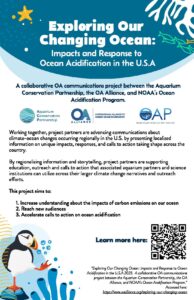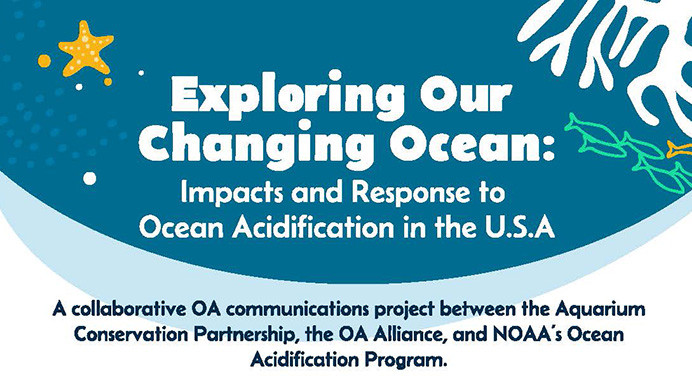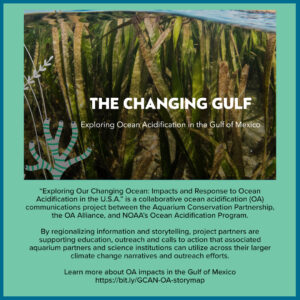The ocean has absorbed approximately 90% of excess heat  and 25% of the carbon dioxide emissions released into the atmosphere by humans. This increased carbon pollution has consequences for our ocean.
and 25% of the carbon dioxide emissions released into the atmosphere by humans. This increased carbon pollution has consequences for our ocean.
Working together, partners on the project “Exploring Our Changing Ocean: Impacts and Response to Ocean Acidification in the U.S.A.” are advancing communications about climate-ocean changes occurring regionally in the U.S. by presenting localized information on unique impacts, responses and calls to action taking shape across the country.
By regionalizing information and storytelling, “Exploring Our Changing Ocean: Impacts and Response to OA” is supporting education, outreach and calls to action that associated aquarium partners and science institutions can utilize across their larger climate change narratives and outreach efforts.
This collaborative OA communications project is being undertaken by the Aquarium Conservation Partnership, the OA Alliance, and NOAA’s Ocean Acidification Program. It also includes regional partners like GCAN — the Gulf of Mexico Coastal Acidification Network.






 showcasing relevant ocean acidification trends, science activities, stakeholder engagements and policy responses taking place across regions where NOAA supports U.S. Coastal Acidification Networks such as GCAN.
showcasing relevant ocean acidification trends, science activities, stakeholder engagements and policy responses taking place across regions where NOAA supports U.S. Coastal Acidification Networks such as GCAN.







